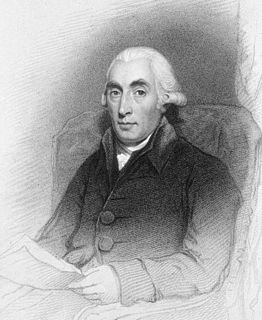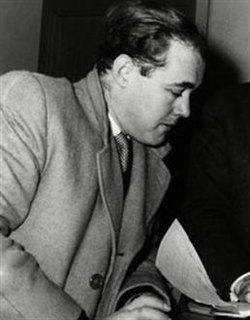A Quote by Benjamin Franklin
Furnished as all Europe now is with Academies of Science, with nice instruments and the spirit of experiment, the progress of human knowledge will be rapid and discoveries made of which we have at present no conception. I begin to be almost sorry I was born so soon, since I cannot have the happiness of knowing what will be known a hundred years hence.
Related Quotes
The rapid progress of the sciences makes me sorry, at times, that I was born so soon. Imagine the power that man will have over matter, a few hundred years from now. We may learn how to remove gravity from large masses, and float them over great distances. Agriculture will double its produce with less labor. All diseases will surely be cured... even old age. If only the moral sciences could be improved as well. Perhaps men would cease to be wolves to one another... and human beings could learn to be human.
In the years since man unlocked the power stored up within the atom, the world has made progress, halting, but effective, toward bringing that power under human control. The challenge may be our salvation. As we begin to master the destructive potentialities of modern science, we move toward a new era in which science can fulfill its creative promise and help bring into existence the happiest society the world has ever known.
It surely can be no offence to state, that the progress of science has led to new views, and that the consequences that can be deduced from the knowledge of a hundred facts may be very different from those deducible from five. It is also possible that the facts first known may be the exceptions to a rule and not the rule itself, and generalisations from these first-known facts, though useful at the time, may be highly mischievous, and impede the progress of the science if retained when it has made some advance.
Upon the whole, Chymistry is as yet but an opening science, closely connected with the usefull and ornamental arts, and worthy the attention of the liberal mind. And it must always become more and more so: for though it is only of late, that it has been looked upon in that light, the great progress already made in Chymical knowledge, gives us a pleasant prospect of rich additions to it. The Science is now studied on solid and rational grounds. While our knowledge is imperfect, it is apt to run into error: but Experiment is the thread that will lead us out of the labyrinth.
Gastronomers of the year 1825, who find sateity in the lap of abundance, and dream of some newly-made dishes, you will not enjoy the discoveries which science has in store for the year 1900, such as foods drawn from the mineral kingdom, liqueurs produced by the pressure of a hundred atmospheres; you will never see the importations which travelers yet unborn will bring to you from that half of the globe which has still to be discovered or explored. How I pity you!
Hinduism has made marvelous discoveries in things of religion, of the spirit, of the soul. We have no eye for these great and fine discoveries. We are dazzled by the material progress that Western science has made. Ancient India has survived because Hinduism was not developed along material but spiritual lines.
The main object of the work was to present such a survey of the advances already made in physical knowledge, and of the mode in which they have been made, as might serve as a real and firm basis for our speculations concerning the progress of human knowledge, and the processes by which sciences are formed.
There's a great difference between knowing that a thing is so, and knowing how to use that knowledge for the good of mankind. Thetrouble with a scientist is we quickly tire of our discoveries. We hand them over to people who are not ready for them, while we go off again into the darkness of ignorance, searching for other discoveries, which will be mishandled in just the same way when the time comes.
The principle of science, the definition, almost, is the following: The test of all knowledge is experiment. Experiment is the sole judge of scientific "truth." But what is the source of knowledge? Where do the laws that are to be tested come from? Experiment, itself, helps to produce these laws, in the sense that it gives us hints. But also needed is imagination to create from these hints the great generalizations--to guess at the wonderful, simple, but very strange patterns beneath them all, and then to experiment to check again whether we have made the right guess.
He who today utters a bold truth that seems to shock some old institution with the premonition of destruction, and that scares men from their propriety, will a hundred years hence be regarded as a remarkably conservative man. And yet the people who stand peculiarly upon what they call the foundations of conservatism, and hold to hard, practical facts, now stand upon that which one hundred years ago was rank heresy.

































